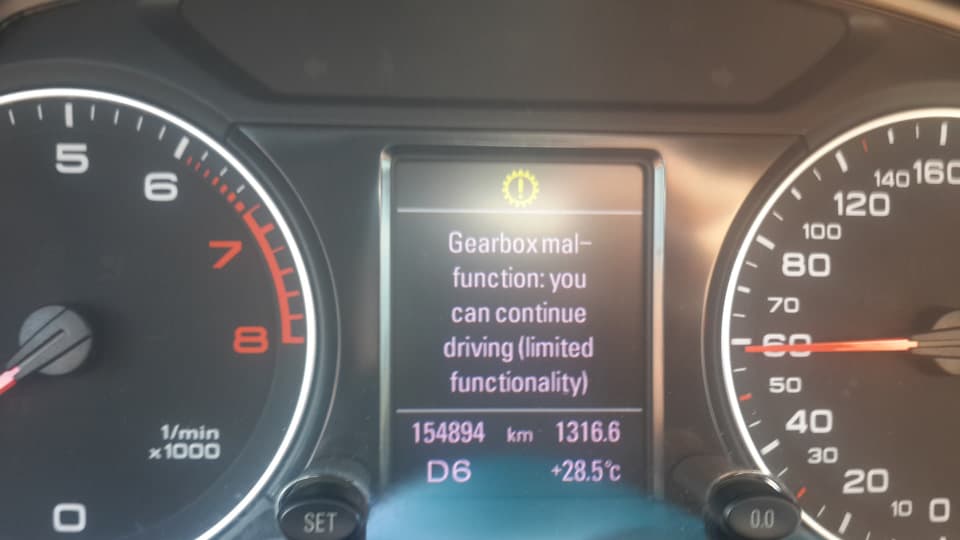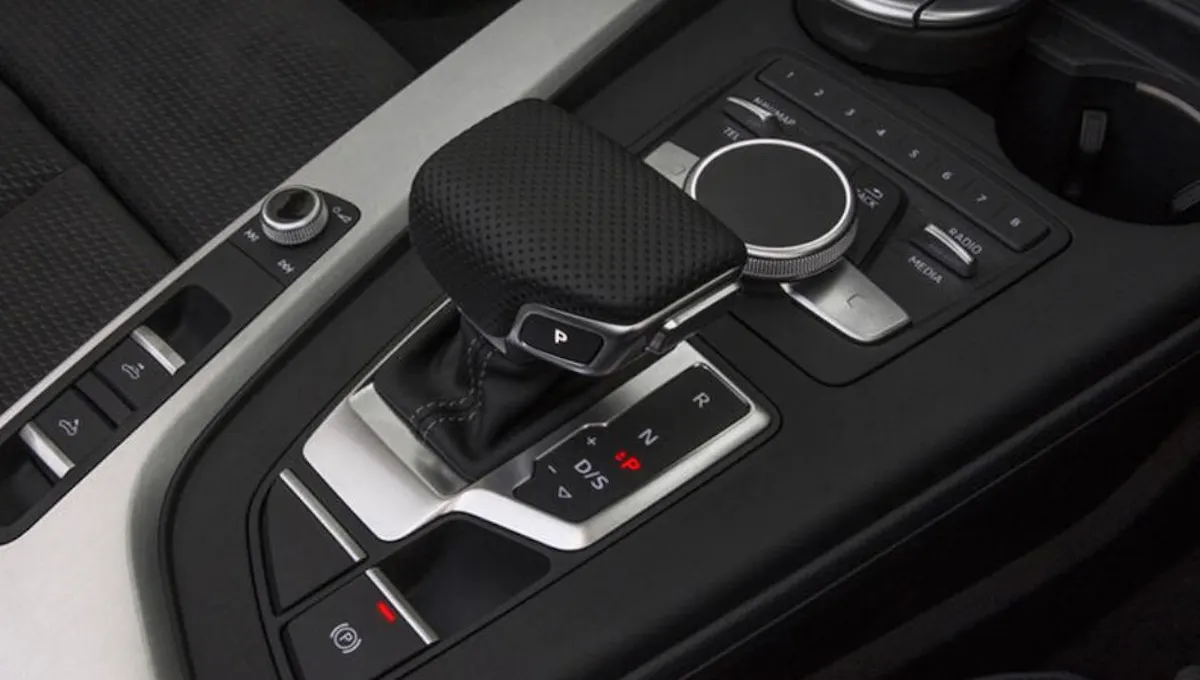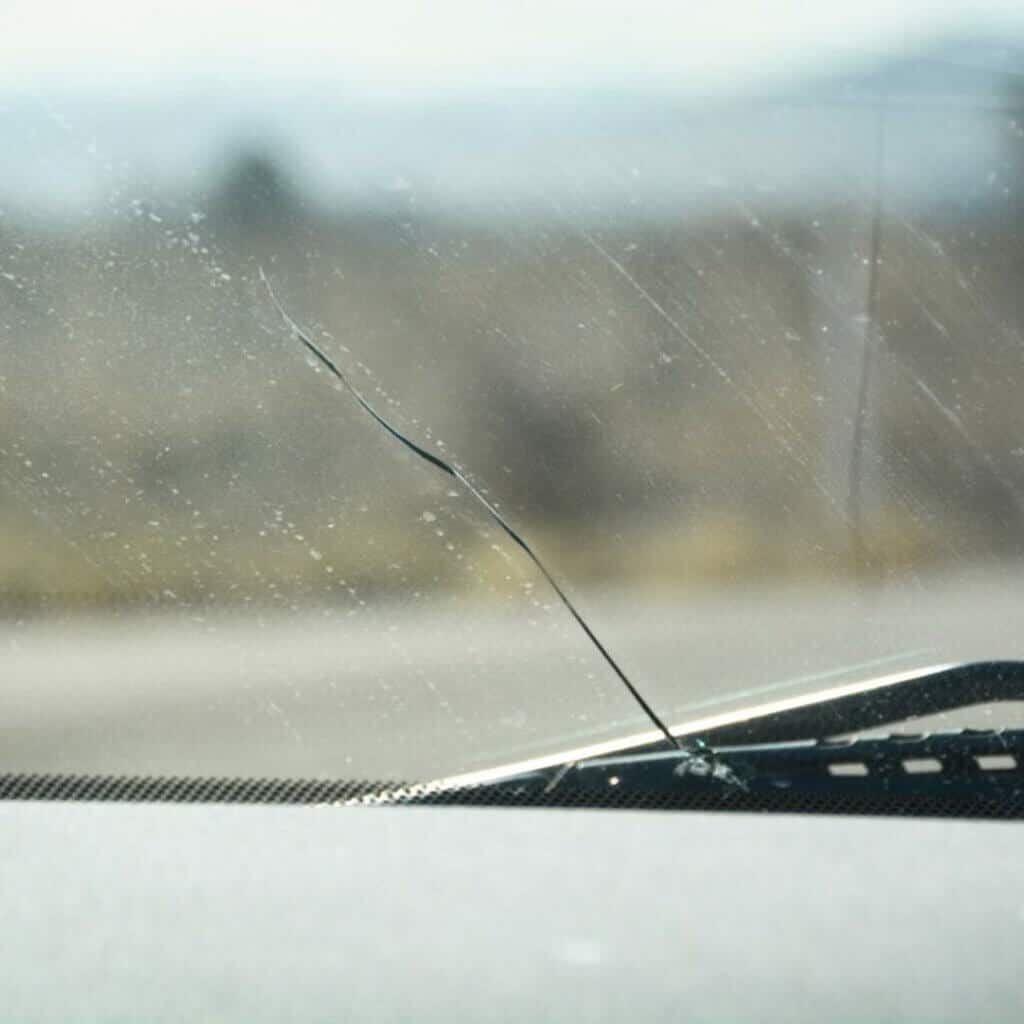What does it mean if you have Gearbox Malfunction you can continue driving (with limited functionality) Audi?
Audi is known for its engineering prowess and cutting-edge technology, which symbolize automotive innovation and luxury. Modern Audi vehicles boast advanced technology and sophisticated systems that enhance the owner’s driving experience.
However, these intricate systems are not immune to faults. One common issue that Audi drivers may encounter is the “Gearbox Malfunction” warning message on their dashboard. As an integral component of the vehicle’s powertrain, the gearbox is vital in ensuring seamless gear shifts and optimal performance.
This article will delve into the meaning of this warning, the leading causes, and how to deal with such problems.
Gearbox Malfunction Audi

The “Gearbox Malfunction” message is a warning light on the Audi dashboard indicating a vehicle transmission problem. Specifically, it displays information detected by the Powertrain Control Module (PCM), which can be mechanical or electrical.
Audi vehicles, especially those equipped with the S-Tronic (DSG) transmission, frequently encounter this alert. The S-tronic is a dual-clutch automatic transmission that offers manual and automatic operation, and balance performance.
Common Causes of “Gearbox Malfunction” on an Audi

- Failed Mechatronic Unit
The mechatronic unit is a vital gearbox component that acts as a controller for various transmission elements. It generates hydraulic power through electronic signals to facilitate the smooth operation of the gearbox.
Over time, the mechatronic unit can fail because of age, wear and tear, or lack of proper maintenance. Its failure is a common cause of the “Gearbox Malfunction” message, often accompanied by the indication that driving is still possible. [1]
Replacing the mechatronic unit is the most effective way to resolve this issue. Seeking assistance from an experienced mechanic or an Audi dealership is recommended for proper diagnosis and replacement. Regular transmission fluid changes and maintenance can extend the life of the mechatronic unit and prevent premature failures.
Price for mechatronic replacement vary from your vehicle model and production year. [2]
- Damaged Clutch
A worn-out clutch is a serious issue that can significantly affect gearbox performance and efficiency. The clutch plays an important role in the transmission system. It transfers engine power to and from the gearbox.
This provides smooth gear shifting and ensures that the engine and gearbox work harmoniously. However, failure of the clutch or flywheel results in failure of the gear lever. This makes it impossible for the driver to select the gears correctly.
Furthermore, if the flywheel is twisted or cracked, it creates an uneven clearance for the clutch to engage, causing trouble in changing gears. A damaged clutch or flywheel must be replaced to get the gear back in full working order. Avoiding aggressive driving and practicing proper gear changes can also reduce clutch wear and extend its life.
- Electrical Issues
Electrical issues within the gearbox of an Audi can be a source of issues that result in a “Gearbox Malfunction” warning. These problems can be caused by faults, such as wiring issues, faulty sensors, and transmission control module (TCM), or engine control unit (ECU).
The malfunctions can disrupt the gearbox’s intricate electronic control system, thereby leading to problems like improper gear shifts, delayed responses, and even complete transmission failure. Professional diagnostic tests can effectively identify the exact electrical issue within the gearbox. [3]
Repairing or replacing faulty components will restore their proper function. To avoid complications, it is essential to conduct regular gearbox inspections and promptly address any electrical problems that may arise.
- Bad Gearbox Connector
The gearbox connector is a small plastic housing that links the gearbox to other electrical components. It enables communication between these components, thus facilitating the transmission’s proper functioning. If this connector becomes damaged or breaks, it can lead to gearbox operation issues.
Thankfully, this is a less severe cause of the “Gearbox Malfunction” message and can be resolved by replacing the faulty connector. Therefore, Inspecting and replacing the damaged gearbox connector is essential to restoring proper communication between the electrical components.
- Faulty Transmission Control Valve
The transmission control valve controls the flow of transmission fluid into the gearbox, which allows for smoother gearshifts. A malfunction of this valve can cause gear-shifting problems or even stop the car.
This issue is relatively common and can be solved by replacing the defective valve with the correct part number [4]. The damaged transmission control valve must be replaced to restore proper flow and gear-shifting capability.
- Cracked Transmission Filter Housing
The transmission filter housing removes contaminants before the transmission fluid enters the gearbox. If a crack develops in this housing due to wear or damage, leakage may occur. This produces the “Gearbox Malfunction” message.
A fractured transmission filter housing needs to be addressed or replaced to ensure appropriate filtering and stop more leaks Regular inspection and careful driving can minimize damage to the transmission housing.
- Poor lubrication
Improper lubrication in the gearbox can significantly affect the overall performance and durability of the transmission system. Lubricating the moving parts in the gearbox is necessary to reduce friction.
When the transmission fluid level is low or the fluid becomes old and degraded, it loses its lubricating properties. As a result, the friction causes heat, which increases viscosity [5].
These issues can result in rough driving experiences, which eventually will cause a “Gearbox Malfunction” error message on your dashboard. To avoid this, ensure that the transmission fluid is at the standard levels. Likewise, replace it at the specified intervals to help maintain smooth gearbox operation.
Read Also: Drive System Malfunction Audi
Audi “Gearbox Malfunction” Symptoms
Audi vehicles experiencing a “Gearbox Malfunction” may exhibit various symptoms beyond the warning message on the dashboard. These symptoms range from subtle changes in gear shifts to more serious issues affecting the vehicle’s overall performance.
Understanding these symptoms can help Audi owners identify the problem early on and seek help from qualified mechanics or Audi dealerships.
- Gears won’t shift smoothly or engage properly: Audi owners may notice that the gear changes feel rough or take longer than usual. This indicates potential issues with the gearbox’s smooth operation and engagement.
- Transmission stuck in Limp Mode: When the vehicle’s Powertrain Control Module (PCM) detects a fault in the gearbox, it may activate the limp mode. Limp Mode restricts the transmission to operate in only one or two gears, which reduces performance.
- Jerky gear shifts or loud noises during gear changes: Jerking sensations during gear changes can indicate issues with the transmission’s synchronizers or clutch. At the same time, loud clunking or grinding noises may suggest damaged gears or worn components within the gearbox.
- Inability to reverse or move in certain gears: Certain gears, including the reverse gear, may become inaccessible when the gearbox malfunctions. Consequently, the vehicle may fail to move backward or forward in specific gear positions.
- Transmission slipping or grinding: Transmission slipping causes a loss of power and vehicle acceleration. Grinding noises during gear shifts can indicate potential damage to the synchronizers or clutch components within the gearbox.
Related: Audi Brake System Malfunction
Conclusion
Addressing the “Gearbox Malfunction” warning in your Audi is crucial to avert further damage and maintain your vehicle’s performance. Regular maintenance, including fluid checks and replacement, can help prevent common causes of gearbox issues.
Additionally, owners should refrain from overloading their vehicles to prevent the early deterioration of gears, bearings, and other vital components.
When facing transmission problems, it’s best to seek professional help from qualified mechanics or Audi dealerships. Proper diagnostics and prompt repairs ensure your gearbox’s longevity and smooth functioning.
Read Next: Audi MMI Not Working





